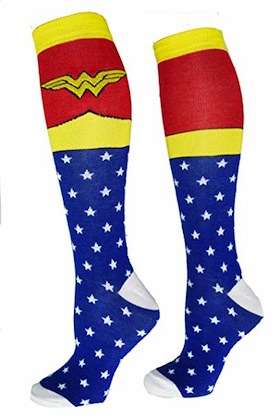Gifts can range from superhero socks to a journal to time with family and friends.
“When you consider the meaning of Chanukah, it’s about the Jewish struggle to maintain observance within a non-Jewish world,” writes Deena Yellin in the article “To gift or not to gift” on chabad.org. “The Maccabees’ victory was not just a military triumph but a win over assimilation as they succeeded in preserving the Jewish tradition. Chanukah presents a wonderful opportunity to convey the message of maintaining a strong identity despite outside pressures.”
In Yellin’s household, they “get out the Chanukah box filled with homemade decorations featuring menorahs and Maccabees that the children made in previous years…. We hang them up in our windows and around the candlelighting area. After all, publicizing the miracle is a big part of celebrating Chanukah.”
As well, every child lights their own chanukiyah, often one they’ve made themselves, and they invite people over. “One of the best ways to show children the beauty of the holiday is by sharing it with friends and relatives.”
Of course, food – latkes, sufganiyot and other deep-fried treats – is part of the celebration, as are games and crafts. Even gift-giving games. “One of my friends,” writes Yellin, “holds a ‘Mystery Maccabee’ project in which everyone picks the name of a family member from a hat so that they only need to buy a gift for that person. At their annual Chanukah party, everyone has fun guessing who got whose gift.”
Finally, many people use “Chanukah as an opportunity to teach their children to think of others who are less fortunate. One way to do this is by encouraging them to donate one of their gifts or some of their gelt to sick or needy children. Other philanthropic options are donating non-perishable items to a local food pantry or volunteering in a soup kitchen.”
***
Sarah Zadok, also in an article published on chabad.org (“Is giving Chanukah presents a non-Jewish custom?”), notes, “The word Chanukah shares a root with the word l’chanech or chinuch, which means ‘to mold’ or ‘to educate.’ Education, especially the education of children, is the foundation of what we celebrate on Chanukah.”
She allows that it is possible to educate and “to highlight the meaning of Chanukah through gift-giving. For example, giving your kids books or tapes or videos about the story of Chanukah…. Or, by drawing attention to the concept of the triumph of light over darkness – another powerful theme of the Chanukah story – you could invite your kids to bring ‘light’ where it is dark. You could, for example, make a project and bring it to a retirement home and brighten up someone’s day, or hand out cookies or latkes or winter coats to homeless people, or teach another Jew about our Chanukah traditions and invite them in to make a blessing over the candles with you.”
***
In the forward.com article “8 days of meaningful Hanukkah giving,” Shanee Markovitz writes, “it’s not about what we give as much as why we are giving it.” She offers night-by-night suggestions based on different themes.
Night 1 (Jewish values and roots): gifts like Chanukah Mad Libs for kids or a gift card to a Judaica store for adults.
 Night 2 (self-care): for kids, tablets that change the colour of bath water; for adults, essential oils for the bath or a massage.
Night 2 (self-care): for kids, tablets that change the colour of bath water; for adults, essential oils for the bath or a massage.
Night 3 (dream big): for all ages, a journal or a pillow and/or pillowcase.
Night 4 (family and friends): again, for all ages, a picture frame for photos of/with family and friends.
Night 5 (hope): for kids, a night-night projector; for adults, scented candles.
Night 6 (gratitude): write someone “a letter of why you are grateful for them and leave them an empty card for them to write a letter and pass on the favour to someone else.”
Night 7 (surround yourself with warmth): for kids and adults, a sweater.
Night 8 (resilience): superhero socks for the kids and, for the adults, a goal planner or household tool kit (Maccabees means “Hammer,” after all).
***
Rabbi Rona Shapiro writes on ritualwell.org, in the article called “Chanukah gifts,” about using theme nights in an effort to practise moderation. Her family has had Big Gift Night (when each child gets one big gift from their parents); Grandparent Night (gifts from the grandparents); Book Night; Music Night (a night of songs); Cooking Night (make latkes and enjoy them with friends); Tzedakah Night (wrap presents to deliver to a children’s hospital or other charity); and Homemade Gift Night (such as a family photo album or scrapbook).
Shapiro suggests incorporating some new rituals into your celebration. For example, “Chag Habanot, the seventh night of Chanukah, is traditionally a women’s holiday (it falls out on Rosh Chodesh) when it was customary for women to give gifts and tell the stories of valiant Jewish women.”
For adults, she suggests presents ranging from personal blessings to wine, food and candles.

